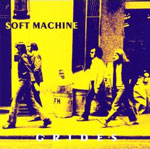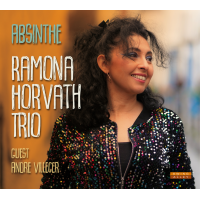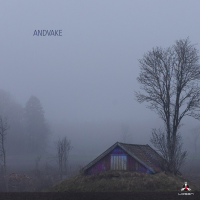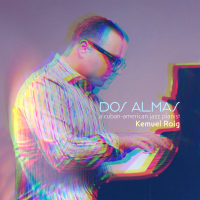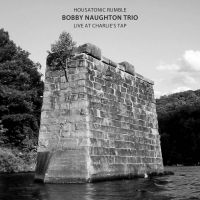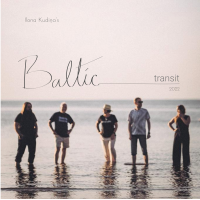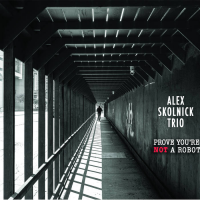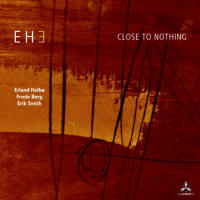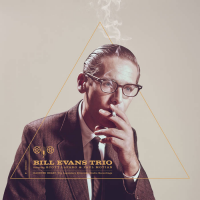Home » Jazz Articles » Album Review » Soft Machine: Grides
Soft Machine: Grides
Absolutely. During this lineup's brief existence, its continuous sets varied significantly from night to night—not just the material, but the order in which songs were presented and the unique ways in which they would be linked together.
Grides fills in the gap of an especially fruitful period between the already documented August, 1970 performance on Live at the Proms 1970 (Reckless, 1988) and the March, 1971 concert on Virtually (Cuneiform, 1998); Wyatt left the group shortly thereafter. This double-disc set includes a CD documenting an October, 1970 Amsterdam concert and a DVD featuring a different 25-minute performance recorded in Bremen on the same day as Virtually.
Between Dean's interest in free jazz, Hopper's bent toward abstruse and often vamp-based writing, and Ratledge's approachable yet knotty compositions—not to mention Wyatt's frustration by the group's relentless migration to instrumental jazz—it's surprising that the group lasted as long as it did. But somehow, together, those tensions resulted in innovation and pure magic.
While Grides is dominated by familiar tracks from earlier studio albums, there is also new material from the upcoming Fourth (Columbia, 1971). But without the expanded instrumentation on this record, Hopper's episodic "Virtually" and Ratledge's "Teeth"—the most complex jazz-centric tune he'd written to date—manage to open up more. Dean's "Neo-Caliban Grides" approaches free jazz, but remains more inside than the version that would appear on his 1971 debut as a leader.
Wyatt may have been unhappy with Soft Machine's more explicitly jazz direction, but you'd never know it based on his playing here. Loose and responsive, he was never as powerful as Tony Williams or Elvin Jones, but he was clearly inspired by both, whereas Dean's labyrinthine lines never sounded like anyone but himself. Neither Hopper's fuzz bass nor Ratledge's distorted Lowry organ ever sounded more ominous.
Seeing Soft Machine perform "Neo-Caliban Grides" on the DVD, only five months after the Amsterdam show, reveals just how rapidly the group evolved toward greater freedom. It's also further evidence of Dean's increasing influence—something that would ultimately result in his leaving shortly after Fifth (Columbia, 1972). Even Wyatt's brief vocal spot is an abstract improv, rather than an actual song.
Grides would be highly recommended for the video footage alone. But packaged with the CD, it's an essential demonstration of just how revolutionary and evolutionary Soft Machine was during this period, moving from a psychedelic pop group to a freewheeling improv unit and finally a guitar-centric fusion band, all within the space of just a few short years.
Track Listing
CD: Facelift; Virtually; Out-Bloody-Rageous; Neo-Caliban Grides; Teeth; Slightly All The Time; Eamonn Andrews; Esther's Nose Job. DVD: Neo-Caliban Grides; Out-Bloody-Rageous; Robert Wyatt's Vocal Improvisation; Eamonn Andrews; All White.
Personnel
Soft Machine
band / ensemble / orchestraElton Dean: alto saxophone, saxello, electric piano; Mike Ratledge: electric piano, organ; Hugh Hopper: bass; Robert Wyatt: drums, vocals.
Album information
Title: Grides | Year Released: 2006 | Record Label: Cuneiform Records
Tags
About Soft Machine
Instrument: Band / ensemble / orchestra
PREVIOUS / NEXT
Support All About Jazz
 All About Jazz has been a pillar of jazz since 1995, championing it as an art form and, more importantly, supporting the musicians who make it. Our enduring commitment has made "AAJ" one of the most culturally important websites of its kind, read by hundreds of thousands of fans, musicians and industry figures every month.
All About Jazz has been a pillar of jazz since 1995, championing it as an art form and, more importantly, supporting the musicians who make it. Our enduring commitment has made "AAJ" one of the most culturally important websites of its kind, read by hundreds of thousands of fans, musicians and industry figures every month.


